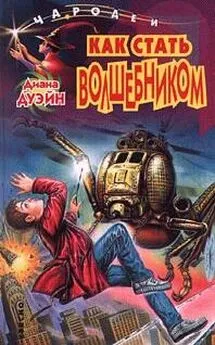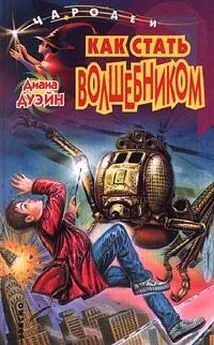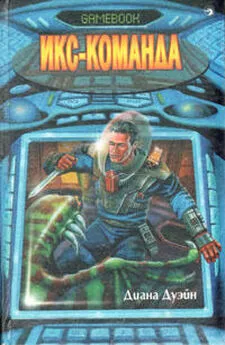Диана Дуэйн - Storm At Eldala
Тут можно читать онлайн Диана Дуэйн - Storm At Eldala - бесплатно
полную версию книги (целиком) без сокращений.
Жанр: Фэнтези.
Здесь Вы можете читать полную версию (весь текст)
онлайн без регистрации и SMS на сайте лучшей интернет библиотеки ЛибКинг или прочесть краткое содержание (суть),
предисловие и аннотацию. Так же сможете купить и скачать торрент в электронном формате fb2,
найти и слушать аудиокнигу на русском языке или узнать сколько частей в серии и всего страниц в публикации.
Читателям доступно смотреть обложку, картинки, описание и отзывы (комментарии) о произведении.
- Название:Storm At Eldala
- Автор:
- Жанр:
- Издательство:неизвестно
- Год:неизвестен
- ISBN:нет данных
- Рейтинг:
- Избранное:Добавить в избранное
-
Отзывы:
-
Ваша оценка:
Диана Дуэйн - Storm At Eldala краткое содержание
Storm At Eldala - описание и краткое содержание, автор Диана Дуэйн, читайте бесплатно онлайн на сайте электронной библиотеки LibKing.Ru
Storm At Eldala - читать онлайн бесплатно полную версию (весь текст целиком)
Storm At Eldala - читать книгу онлайн бесплатно, автор Диана Дуэйн
Тёмная тема
↓
↑
Сбросить
Интервал:
↓
↑
Закладка:
Сделать
She did, in the one other chair that the room contained. There was nothing else in the place but a table with some data solids on it.
"The captain tells me that you've been asking your superior for a chance to speak to me regarding the mission that brought me here." "Yes, sir."
'This suggests that you think you know what should be done about the situation." "I think so, sir."
"After, of course, having gone through all the salient information that we have spent the last months collecting and collating."
"All of it that has been made available to me, sir, yes."
Kharls looked at her. She was experienced enough at what she had been doing over the past few years. The administrative department that had sent her to him along with several other Concord Intelligence operatives had spoken highly of her talents. Now he would see whether they were justified in doing so. "Very well. You've seen the subject's statements on the matter, and you've seen Intel's recommendations regarding the situation so far. What is your opinion of them?"
She took a deep breath. "I think they look like a pack of misdirections and lies from beginning to end." "Any ideas as to whose lies?" Kharls asked. She said nothing.
He sat back in his chair. "You know," Kharls said slowly, "there was a time, a culture—a human culture, mind you—in which, if someone accused you of lying, they had the right to try to kill you. Right there. Isn't that fascinating?"
She paled, and her eyes slid to the tri-staff that leaned casually against the wall within Kharls's reach. "They called it 'giving someone the lie,' " Kharls said, "or 'the lie direct'. What a busy time it must have been, human nature being what it was and is."
"Administrator Kharls," Delonghi said, sounding much more cautious now, "maybe I should rephrase that."
"Maybe you should."
"Your behavior as regards this . . . asset, if that's the word I'm fumbling for—for he looks more like a liability every time I consider him—your behavior regarding him is undermining a genuine Intelligence priority. How is Concord Intel—or Star Force Intel for that matter, since that's my cover at the moment—supposed to find out anything useful when you allow other assets to contaminate him?" " 'Allow?' " He looked at her with surprise. "That suggests that I know in advance what they're going to do."
"Of course you—" She stopped.
Kharls looked at her hard from under those bushy eyebrows. "Miss Delonghi," he said. "Forgive me if I do not take you entirely into my confidence at the moment. I have a very large remit, as you may know—"
"You are a Concord Administrator," she said, with the air of someone trying to cut straight to the heart of the matter, "and probably the most powerful being in these spaces."
He leaned back again, though not with any look of being flattered or mollified. "Would it shock you," Kharls began, "if you knew that my main purpose, as so powerful a being—let me for the moment adopt your language—was to create the conditions in which my job description, and my job, became unnecessary?"
Her eyes widened. Kharls did not smile at her, though the temptation briefly crossed his mind. "You won't believe me when I say as much," Kharls said. "What sane being would? Who would want to put himself out of a job in which planetary governments take his lightest word as the equivalent of enacted primary legislation, in which he can exercise what used to be called 'high, low, and middle justice'— the powers ofjudge, jury, and executioner? Would you believe something like that? Of course not. So I can make such outrageous statements and get away with it. Not being believed is a tool of considerable utility when one exercises it with care." He waited to see if she would at least react to the irony. Not a flicker, he thought. It will be a while yet before this one has come along to where I want her. "At any rate, I have not sent this particular asset out into the night to remain uncontaminated."
"There are those who say he's contaminated enough as it is," said Delonghi, trying unsuccessfully to restrain an expression of scorn.
"So they have and will," Kharls replied. "That's all to the good, for the moment. If the situation changes, I will judge it accordingly … but not before."
"You're telling me that you've purposely sent this operative out to make contact with enemy intelligence organizations—"
" 'Enemy' is such a narrowing term," said Kharls. "Who knows in what relationship the Concord will stand within, say, twenty or thirty years to any of the stellar nations that presently are not part of it? Or how matters will stand in the Verge? And even inside the Concord, as you well know, there's considerable difference of opinion about what nations and issues are most important. Nearly infinite difference of opinion." He smiled grimly. "Fortunately, my job is not about reconciling opinion, which is just as well, since that would be impossible. My job is to make things out here in the Verge work as well as they can for the moment, and to figure out how to make them work better still for the people who'll come out here to live, and those who are here already. In particular, my remit charges me to look out toward the edges of things, the unpoliced and untravelled spaces all around the Verge where situations are not as clear-cut as they are in toward the First Worlds—much less structured and more chaotic. The textbooks don't do much good out here for even the best-intentioned agent, ambassador, or ship's commander. One learns to strike out into the dark and try techniques that might seem foolish elsewhere." Kharls sat back again, looking at his folded hands. "I have no scruples about using agents who may seem tainted or chaotic to the textbook types. If that conceals such agents' true value, so much the better, for valuable assets, unfortunately, tend to be killed the most quickly. As regards the object of our discussion, however, you need to be clear that I have not sent him anywhere. He is one of the very few genuinely free operatives I manage—if manage is even the word, since he completely rejects any idea that I have any such power over him." "Then he's a fool," Delonghi said. "Possibly, but he's also right."
Delonghi kept her face still. Kharls watched this exercise with interest. "See that," he said, "you still don't believe me. I wonder if the ancients had an offense called 'disbeliefdirect'?"
He got up, stretched, and stepped around to the big viewport that was the room's only other indulgence. "If he draws the attention of other intelligence assets," Kharls said, looking out into the starry blackness, "that is all to the good. He is a lightning rod, Delonghi. He is being held out into the dark specifically to see what forces he attracts. But he is not to be seen as having no value simply because he is being used as a lightning rod. In the old days, the very best ones used to be made at least partially of precious metal."
Kharls turned away from the viewport. "Now, obviously you want to go out and have a personal look into this situation … and meddle." Her face did not move at the word. "Well, you were a talented meddler for some years, which is why you're here with me and my people at all. I suppose we can hardly blame you for wanting to revert to type."
He sat down again. "In short, I've decided to allow you to do so. I am instructing you to go and examine this situation personally." Her eyes narrowed. Badly concealed triumph, which for the moment he declined to notice. "With the following conditions. You are not to interfere in any way with the subject's free pursuit of his own objectives. You may try to determine what they are or what he thinks they are. I require you to report to me regularly on the details. You are to pay particular attention to the attempts of other intelligence organizations to interfere with him. You are not yourself to interfere with those attempts."
"Even if they kill him?"
"They may look like they want to," said Kharls softly, "but I assure you, they do not. They will not either, unless someone fumbles badly. They are eager to find out why we are so interested in him. As eager as you are, I dare say."
At that, she did have the grace to blush. Kharls did not react to this either. "You are to keep your own head down. Do not be noticed by them. For our own part, I want to know the sources of their interest—the motivations of whoever you find watching him or trying to affect him. No one spends so much time watching someone merely to discover what he knows that they don't. More often they watch to see what he knows that they know too … and what they fear for anyone else to find out." She nodded.
"You will return on recall," Kharls said. "Consult with the colonel and the captain about your equipment and cover. Otherwise, go do your work." "Thank you, sir," Delonghi said.
"I wouldn't," Kharls said, "until you come back with your job successfully completed." She turned to go.
" 'Middle justice,' " Kharls said softly. "I always wondered about that one."
He glanced up again. Hurriedly, she saluted him and left. The door slid shut behind her, leaving Kharls alone in his office.
She had her own agenda. Well, he had no interest in agents who didn't. The truly agendaless ones were too dangerous to trust with anything. It was always a risk, sending an operative out on really difficult business—especially since it was difficult to tell exactly how he or she would react. As he had said, he did not scruple to use the tainted or skewed asset when the moment came right. His job required him to use his tools—the lightning rod or the gun—with equanimity, to use them as effectively as their structures allowed, and to destroy them if necessary … and not to count the cost until the job was done. For Lorand Kharls, as he felt his way toward the secrets of the deadly and dangerous things that were slowly beginning to reveal themselves at the edges of the Verge, that would most likely be many years. For the lightning rod . . .
… he would have to wait and see.
Gabriel was desperately busy for a week and a half. Arrangements had to be made with the data tank installers on Grith, and while that happened Sunshine had to be landed at Diamond Point and kept in bond, with all the nuisance that entailed—signing in and out every time you came aboard and executing a full "incoming" inventory. Then came provisioning and victualling, with all those supplies having to be delivered to a different part of the bond facility, every box opened, every piece of replacement equipment checked. Then for the weaponry installation, Sunshine had to be taken out of bond again and trucked over to one of the unsealed parts of the port. Gabriel had laughed at the description of the area as "low security." He didn't think he had ever seen as many discreetly disguised missile launchers and energy weapons arrayed around a shipchandler's yard as he saw here.
This part of the work was easiest for Gabriel, for Helm came into his own here—never leaving the shipchandlery while anyone was working on Sunshine, hanging over the mechanics' and engineers' shoulders, seeming to watch everything at once. They swore at him, but not too often. Everyone there knew that Helm was expert with weaponry, and though he did not seem to be "carrying," this impression could be a mistake.
"I never shot anybody for an honest mistake," he'd joke with them. The installers would laugh and keep a close eye on Helm while he checked the installation schematics against the circuit-solids that were going in.
The gunnery work—a very hush-hush removal of the old plasma cannon energy conduits and their replacement with new ones and new software to match—took three days. It might have taken four if Gabriel had allowed what Helm wanted, the removal of the rail cannon, but at the last moment he decided to keep it. Helm argued the point, but not hard, perhaps detecting that Gabriel had something on his mind. He did, but he couldn't explain it and refused to try. He was nervous enough about the work being done on the plasma cannons. They were not legal and were being carried "concealed" with flap ports typical of much more innocuous weapons covering them. The thought that someone whose silence had not been paid for might drop a word about those guns into the wrong ears was one that recurred
Читать дальше
"The captain tells me that you've been asking your superior for a chance to speak to me regarding the mission that brought me here." "Yes, sir."
'This suggests that you think you know what should be done about the situation." "I think so, sir."
"After, of course, having gone through all the salient information that we have spent the last months collecting and collating."
"All of it that has been made available to me, sir, yes."
Kharls looked at her. She was experienced enough at what she had been doing over the past few years. The administrative department that had sent her to him along with several other Concord Intelligence operatives had spoken highly of her talents. Now he would see whether they were justified in doing so. "Very well. You've seen the subject's statements on the matter, and you've seen Intel's recommendations regarding the situation so far. What is your opinion of them?"
She took a deep breath. "I think they look like a pack of misdirections and lies from beginning to end." "Any ideas as to whose lies?" Kharls asked. She said nothing.
He sat back in his chair. "You know," Kharls said slowly, "there was a time, a culture—a human culture, mind you—in which, if someone accused you of lying, they had the right to try to kill you. Right there. Isn't that fascinating?"
She paled, and her eyes slid to the tri-staff that leaned casually against the wall within Kharls's reach. "They called it 'giving someone the lie,' " Kharls said, "or 'the lie direct'. What a busy time it must have been, human nature being what it was and is."
"Administrator Kharls," Delonghi said, sounding much more cautious now, "maybe I should rephrase that."
"Maybe you should."
"Your behavior as regards this . . . asset, if that's the word I'm fumbling for—for he looks more like a liability every time I consider him—your behavior regarding him is undermining a genuine Intelligence priority. How is Concord Intel—or Star Force Intel for that matter, since that's my cover at the moment—supposed to find out anything useful when you allow other assets to contaminate him?" " 'Allow?' " He looked at her with surprise. "That suggests that I know in advance what they're going to do."
"Of course you—" She stopped.
Kharls looked at her hard from under those bushy eyebrows. "Miss Delonghi," he said. "Forgive me if I do not take you entirely into my confidence at the moment. I have a very large remit, as you may know—"
"You are a Concord Administrator," she said, with the air of someone trying to cut straight to the heart of the matter, "and probably the most powerful being in these spaces."
He leaned back again, though not with any look of being flattered or mollified. "Would it shock you," Kharls began, "if you knew that my main purpose, as so powerful a being—let me for the moment adopt your language—was to create the conditions in which my job description, and my job, became unnecessary?"
Her eyes widened. Kharls did not smile at her, though the temptation briefly crossed his mind. "You won't believe me when I say as much," Kharls said. "What sane being would? Who would want to put himself out of a job in which planetary governments take his lightest word as the equivalent of enacted primary legislation, in which he can exercise what used to be called 'high, low, and middle justice'— the powers ofjudge, jury, and executioner? Would you believe something like that? Of course not. So I can make such outrageous statements and get away with it. Not being believed is a tool of considerable utility when one exercises it with care." He waited to see if she would at least react to the irony. Not a flicker, he thought. It will be a while yet before this one has come along to where I want her. "At any rate, I have not sent this particular asset out into the night to remain uncontaminated."
"There are those who say he's contaminated enough as it is," said Delonghi, trying unsuccessfully to restrain an expression of scorn.
"So they have and will," Kharls replied. "That's all to the good, for the moment. If the situation changes, I will judge it accordingly … but not before."
"You're telling me that you've purposely sent this operative out to make contact with enemy intelligence organizations—"
" 'Enemy' is such a narrowing term," said Kharls. "Who knows in what relationship the Concord will stand within, say, twenty or thirty years to any of the stellar nations that presently are not part of it? Or how matters will stand in the Verge? And even inside the Concord, as you well know, there's considerable difference of opinion about what nations and issues are most important. Nearly infinite difference of opinion." He smiled grimly. "Fortunately, my job is not about reconciling opinion, which is just as well, since that would be impossible. My job is to make things out here in the Verge work as well as they can for the moment, and to figure out how to make them work better still for the people who'll come out here to live, and those who are here already. In particular, my remit charges me to look out toward the edges of things, the unpoliced and untravelled spaces all around the Verge where situations are not as clear-cut as they are in toward the First Worlds—much less structured and more chaotic. The textbooks don't do much good out here for even the best-intentioned agent, ambassador, or ship's commander. One learns to strike out into the dark and try techniques that might seem foolish elsewhere." Kharls sat back again, looking at his folded hands. "I have no scruples about using agents who may seem tainted or chaotic to the textbook types. If that conceals such agents' true value, so much the better, for valuable assets, unfortunately, tend to be killed the most quickly. As regards the object of our discussion, however, you need to be clear that I have not sent him anywhere. He is one of the very few genuinely free operatives I manage—if manage is even the word, since he completely rejects any idea that I have any such power over him." "Then he's a fool," Delonghi said. "Possibly, but he's also right."
Delonghi kept her face still. Kharls watched this exercise with interest. "See that," he said, "you still don't believe me. I wonder if the ancients had an offense called 'disbeliefdirect'?"
He got up, stretched, and stepped around to the big viewport that was the room's only other indulgence. "If he draws the attention of other intelligence assets," Kharls said, looking out into the starry blackness, "that is all to the good. He is a lightning rod, Delonghi. He is being held out into the dark specifically to see what forces he attracts. But he is not to be seen as having no value simply because he is being used as a lightning rod. In the old days, the very best ones used to be made at least partially of precious metal."
Kharls turned away from the viewport. "Now, obviously you want to go out and have a personal look into this situation … and meddle." Her face did not move at the word. "Well, you were a talented meddler for some years, which is why you're here with me and my people at all. I suppose we can hardly blame you for wanting to revert to type."
He sat down again. "In short, I've decided to allow you to do so. I am instructing you to go and examine this situation personally." Her eyes narrowed. Badly concealed triumph, which for the moment he declined to notice. "With the following conditions. You are not to interfere in any way with the subject's free pursuit of his own objectives. You may try to determine what they are or what he thinks they are. I require you to report to me regularly on the details. You are to pay particular attention to the attempts of other intelligence organizations to interfere with him. You are not yourself to interfere with those attempts."
"Even if they kill him?"
"They may look like they want to," said Kharls softly, "but I assure you, they do not. They will not either, unless someone fumbles badly. They are eager to find out why we are so interested in him. As eager as you are, I dare say."
At that, she did have the grace to blush. Kharls did not react to this either. "You are to keep your own head down. Do not be noticed by them. For our own part, I want to know the sources of their interest—the motivations of whoever you find watching him or trying to affect him. No one spends so much time watching someone merely to discover what he knows that they don't. More often they watch to see what he knows that they know too … and what they fear for anyone else to find out." She nodded.
"You will return on recall," Kharls said. "Consult with the colonel and the captain about your equipment and cover. Otherwise, go do your work." "Thank you, sir," Delonghi said.
"I wouldn't," Kharls said, "until you come back with your job successfully completed." She turned to go.
" 'Middle justice,' " Kharls said softly. "I always wondered about that one."
He glanced up again. Hurriedly, she saluted him and left. The door slid shut behind her, leaving Kharls alone in his office.
She had her own agenda. Well, he had no interest in agents who didn't. The truly agendaless ones were too dangerous to trust with anything. It was always a risk, sending an operative out on really difficult business—especially since it was difficult to tell exactly how he or she would react. As he had said, he did not scruple to use the tainted or skewed asset when the moment came right. His job required him to use his tools—the lightning rod or the gun—with equanimity, to use them as effectively as their structures allowed, and to destroy them if necessary … and not to count the cost until the job was done. For Lorand Kharls, as he felt his way toward the secrets of the deadly and dangerous things that were slowly beginning to reveal themselves at the edges of the Verge, that would most likely be many years. For the lightning rod . . .
… he would have to wait and see.
Gabriel was desperately busy for a week and a half. Arrangements had to be made with the data tank installers on Grith, and while that happened Sunshine had to be landed at Diamond Point and kept in bond, with all the nuisance that entailed—signing in and out every time you came aboard and executing a full "incoming" inventory. Then came provisioning and victualling, with all those supplies having to be delivered to a different part of the bond facility, every box opened, every piece of replacement equipment checked. Then for the weaponry installation, Sunshine had to be taken out of bond again and trucked over to one of the unsealed parts of the port. Gabriel had laughed at the description of the area as "low security." He didn't think he had ever seen as many discreetly disguised missile launchers and energy weapons arrayed around a shipchandler's yard as he saw here.
This part of the work was easiest for Gabriel, for Helm came into his own here—never leaving the shipchandlery while anyone was working on Sunshine, hanging over the mechanics' and engineers' shoulders, seeming to watch everything at once. They swore at him, but not too often. Everyone there knew that Helm was expert with weaponry, and though he did not seem to be "carrying," this impression could be a mistake.
"I never shot anybody for an honest mistake," he'd joke with them. The installers would laugh and keep a close eye on Helm while he checked the installation schematics against the circuit-solids that were going in.
The gunnery work—a very hush-hush removal of the old plasma cannon energy conduits and their replacement with new ones and new software to match—took three days. It might have taken four if Gabriel had allowed what Helm wanted, the removal of the rail cannon, but at the last moment he decided to keep it. Helm argued the point, but not hard, perhaps detecting that Gabriel had something on his mind. He did, but he couldn't explain it and refused to try. He was nervous enough about the work being done on the plasma cannons. They were not legal and were being carried "concealed" with flap ports typical of much more innocuous weapons covering them. The thought that someone whose silence had not been paid for might drop a word about those guns into the wrong ears was one that recurred
Читать дальше
Тёмная тема
↓
↑
Сбросить
Интервал:
↓
↑
Закладка:
Сделать








